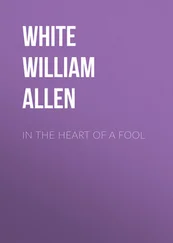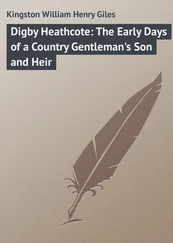There was a time when my hand, too, held heat and when its touch left a burn beneath the skin and I sought beauty like the bee his queen; but it was a high flight for an old tyrant, and not worth wings. Doubtless there were sweet and brave and foolish times between them. There may be sweet times now. Such times lie beyond my conjuring. I only know that thorough evil is as bright as perfect good and seems as fair; for animals that live in caves are bleached by darkness and so shine in their surroundings as the good soul does in its, albino as the stars. But beauty or any of its brilliant semblances is foreign to Mr. Wallace and his wife and to the Means. Real wickedness is rare. Certainly it does not rest in the tawdry murder of millions, even Jews. It rests rather on the pale brow of every saviour who to save us all from death first kills. Nevertheless, it is the Jewish fleshsmoke that one smells, the burning cords of bodies, and it is hard to see the soul through that stiff irreverent wood, I suppose, just as it is hard for me to light a bright bulb in the house of the Means, or place between the boards of husband Wallace and his wife a lover’s need and pleasure.
Although, as it turned out, I was unable to capture Mr. Wallace, who clung tenaciously to his secrets, my triumph was complete. I broke the weaker vessel. I heard his cane rap on the front door and I rushed from my study to prevent his entrance. However, my wife forestalled me and Mr. Wallace was already in the living room when I arrived, sinking on the piano bench, his face alarmingly red and his eyes blinking at shadows. He filled the room with his hoarse hospitalities. I was brusque with my wife. I had hoped to hold him to the porch. I had read of saints who kissed the suppurating sores of beggars and I had always doubted the spiritual merit of it, but in front of Mr. Wallace I could only marvel that the act had been performed. At last I turned my wife away and Mr. Wallace pulled at the brim of his straw hat and stuttered at a shout his puzzlement. He shook, poor fellow, with anxiety. I laughed. I made light of everything. Moles are of course, I said, the accidents of birth. There’s no more to be seen in their position than in the order of the stars. The ancient Greek philosophers, for the most part, have spoken clearly on the subject. Perhaps Pythagoras was not as plain as one would wish, while Socrates had in him from his birth a warning voice and Plato was given on occasion to behavior which was, well, scarcely consistent with his love of mathematics; yet Aristotle remained firm and did not generally recognize the power of premonition. The Christian Church, to be frank, regards such things as satanic, although there have been happenings which do appear upon their face to be… of a nature nearer to — what shall I say? — the epiphany of an occult world: nail holes on the feet and hands of even little boys, visions of the virgin, voices, seizures, transports, ecstasies, then the miracles worked by sainted bones, the wood of the true cross, cloth of the holy cape, blood, excrement, and so on… wounds in the side from which cool water flows as pure as the purest spring. Still… still… the church is stern. The Jews, too, are a hardheaded lot. There is of course the Cabala, the magical book. Nevertheless Yaweh is forthright. And so we know the leaves of tea arrange themselves for our amusement while the warm insides of fowl permit only the primitive to divine. Was it not before Philippi that the ghost of Julius Caesar…? However… all omens are imaginings. We should laugh when we read disaster. In medieval days the story went about of a stream of spring-fresh water so sweet and pure that on the tongue it made the spirit eloquent and the head giddy with thanksgiving. Yet when men followed its turnings to its source they found it sprang from the decaying jaws of a dead dog. Thence the faithful spoke of how it was that from a foul, corrupt, and wicked world the clean and whole and good would one day flow. Mr. Wallace thanked me and tried to rise. He beckoned me and I went close and a powerful hand gripped my upper arm and pulled. The monster rose and his mouth broke open bitterly. Good-bye.
At last. But Mr. Wallace cannot whisper. The walls rang with him. What did she think when she heard? Will she cringe again? She came with tea some minutes later and pretended surprise at finding him gone. I had to stare at her until her cup shook. Then I went upstairs to my room.
When all was well begun and seemed well ended, the Wallaces joined the Means. Perhaps the Means read moles better than I do. Better: perhaps they do not know what moles may mean.
The houses here are served by alleys. Garages face them. Trash spills over the cinders and oil flavors the earth. The Wallaces have helped themselves up the Means’ porch steps and day is falling when I begin my walk through the alleys by the backsides of the houses. The house of love is first. The shades are drawn. Who knows when passion may choose to spring from its clothes? I hear the Wallaces moving on the porch — the scrape of a chair. Eternity Tomorrow. It is tacked on the inside of the door. The letters swallow at the light. Their car is parked elsewhere but I resist the temptation to go in. Cracks in the walls net the floor. Beer cans glow. A wagon hangs precariously by its handle to the wall. I am at the entrance and frightened by it as a child is frightened by the cold air that drifts from a cave to damp the excitement of its discovery. Not since I was very young have I felt the foreignness of places used by others. I had forgotten that sensation and its power — electric to the nerve ends. The oiled ash, the cool air, the violet light, the wracked and splintered wood, the letters of the prophecy — they all urge me strangely. Mrs. Wallace hoots. I move on. The lane looks empty of all life like a road in a painting of a dream. I am a necromancer carrying a lantern. The lamp is lit but it gives no light. My steps are unnaturally loud and I tell myself I have fallen into the circle of my own spell. Tin briefly fires. Then I hear the voice of Mrs. Cramm. Her virtuous shoes show beneath the partly opened door of her garage. She stores things there for she has no car. By her shoes are another pair — a child’s. The child giggles and is shushed. I have been loud in the lane yet they have not heard me. Now stock still, I fear to move. The door swings and I back in panic. I jump into the Means’ garage. The door does not close and Mrs. Cramm remains hidden behind it with the child, conversing in low tones. Finally the feet begin to move and I duck deeply into the darkness of the Means. I feel a fool. Steps are coming quickly. Light steps. What a fool. They turn in. The child is in the door, a boy I think — Tim or Ames. I crouch in the dark by a tire, hiding my eyes as if he might see me with them. Fool. Why? Why have I done this? Why am I hiding here like a thief? The child’s feet pass me and I hear a loud clink. Then he comes from the rear of the barn and goes out and his feet disappear onto grass. My courage returns and I follow what my ears have remembered back into the barn but I fail to find what it was he has deposited there. I bark my shin on a cycle. In the lane I put my hands in my pockets. The alley is empty. The light is nearly gone. I realize that I have breached the the fortress, yet in doing so I lost all feeling for the Means and sensed only myself, fearful, hiding from a child. A cat fires from a crack in Mrs. Cramm’s garage and passes silently into the darkness. My stomach burns. I walk forward until I reach the turf and stand by redbud and by dogwood trees. I see her then, utterly gray and unshaped and unaccompanied, a thin gray mist by a tree trunk, and I stand dumbly too while the dusk deepens. Indeed I am not myself. This is not the world. I have gone too far. It is the way fairy tales begin — with a sudden slip over the rim of reality. The streetlights flare on Mrs. Cramm. Her arms are clenched around her. She is watching the Means’ front porch from which I hear a whinny. Unaccountably I think of Hänsel and Gretel. They were real and they went for a walk in a real forest but they walked too far in the forest and suddenly the forest was a forest of story with the loveliest little cottage of gingerbread in it. There is a flash in the ribboned darkness. From the corner of my eye I think I see the back door of the Means’ house close. Mrs. Cramm is fixed — gray and grotesque as primitive stone. I back away. The ribbons of light entangle me. I crawl between garages. My feet slip on cans. Fool fool fool. I try to think what I’m doing. One day Jack went to town to buy a cow and came home with a handful of beans. I slip. There is a roar of ocean like a roaring mob. Have I gone down before the giant? Mrs. Cramm is suddenly gone and I slink home.
Читать дальше












